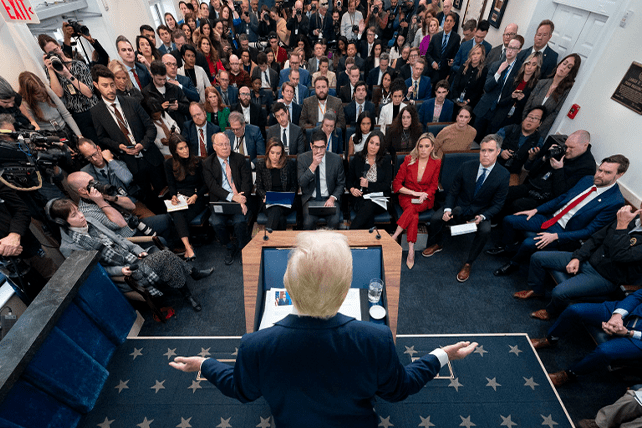That decision too was opposed by liberal and conservative-leaning outlets alike, with a Fox News White House reporter blasting the decision on social media.
On Monday, a federal judge allowed the White House’s ban to stand for now, though more legal action is promised by AP. “As we have said from the beginning, asking the President of the United States questions in the Oval Office and aboard Air Force One is a privilege granted to journalists, not a legal right,” the White House press office said in response to the ruling.
Some of those at the Gaylord Texan convention center this week backed the White House’s ban, expecting it would be temporary. NRB member Jeffrey Anderson, who has worked in Christian broadcasting for more than a decade, said that while he supports freedom of the press and free speech, he remains frustrated by what he described as liberal media.
“The Associated Press, they been very liberal for decades, and the Trump administration, I believe, is just giving them a swift kick in the butt,” he said, adding that he expected the outlet would be back in the press room within weeks.
But while most NRB members who were approached for comment declined to be quoted, claiming either ignorance about the situation or not being authorized to speak on behalf of their media organization, they nonetheless described unease with Trump’s actions.
Thomas Graham, CEO of Crosswind Media in Austin, Texas, said that while he celebrated the White House’s decision to grant podcasters, influencers and other content creators access to the halls of power, singling out one outlet for punishment can be a “slippery slope.”
“Anytime you get in a role where you’re pushing or punishing someone for reporting their view of the facts, that is not freedom,” he said, noting his background as a reporter. “Freedom should be freedom of speech, freedom of the press.”
Graham added that he opposed a “punitive approach, rather than open-expression approach.”
This article originally appeared here.

